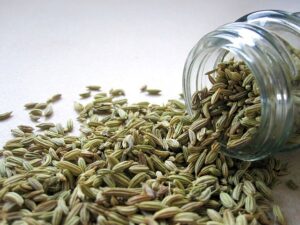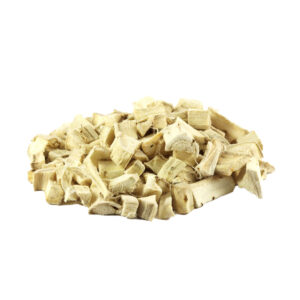Experiencing discomfort after eating certain foods is a common occurrence, often manifesting as stomach burning. This sensation can be distressing, affecting one’s enjoyment of meals. Fortunately, integrating specific healthy foods into your diet can help alleviate this issue. In this article, we delve into stomach-burning home remedies in detail, aiming to provide relief and improve overall well-being.
Stomach Burning: Why Does it Happen?
Stomach burning can result from various factors, including Gastroesophageal Reflux Disease (GERD), stress, obesity, and pregnancy. It occurs when stomach acid flows back into the esophagus, leading to discomfort and irritation. Managing diet and lifestyle can mitigate this sensation, promoting digestive health and preventing discomfort.
Food That Can Cause Stomach Burning:
Certain foods and habits can exacerbate stomach burning, especially for individuals with allergies, GERD, or chronic acidity. Avoiding trigger foods like milk, gluten foods, alcohol, fried items, caffeine, chocolate, and citrus fruits, along with adopting healthy lifestyle practices, can help manage symptoms effectively.
Other Causes of Stomach Burning:
Various conditions such as indigestion, functional dyspepsia, GERD, Irritable Bowel Syndrome (IBS), peptic ulcers, stomach infections, and medication side effects can contribute to stomach burning. Identifying the underlying cause is crucial for effective management and relief from discomfort.
Signs and Symptoms of a Burning Stomach:
Recognizing the signs of a burning stomach is essential for prompt intervention. Symptoms may include a burning sensation in the stomach, chest, and throat, nausea, vomiting, burping, bloating, sore throat, coughing, wheezing, hiccups, and difficulty swallowing.
Home Remedies to Stop Burning Sensation:
Several readily available home remedies can alleviate stomach burning effectively. Incorporating foods like bananas, lemon juice, ginger, apple cider vinegar, aloe vera gel, basil, green tea, yogurt, mint leaves, jaggery, probiotics, chewing gum, peppermint, and baking soda into your diet can provide relief from discomfort
In addition to dietary modifications and lifestyle changes, several home remedies can effectively alleviate the burning sensation in the stomach:
- Chamomile Tea: Chamomile tea possesses anti-inflammatory properties that can soothe stomach irritation and reduce burning sensations. Drinking a cup of chamomile tea after meals can help alleviate discomfort.

- Coconut Water: Coconut water is rich in electrolytes and has a cooling effect on the stomach lining. Consuming coconut water regularly can help neutralize stomach acid and alleviate burning sensations.

- Fennel Seeds: Fennel seeds are known for their carminative properties, which aid digestion and reduce bloating and gas. Chewing on a teaspoon of fennel seeds after meals can help relieve stomach burning.

- Marshmallow Root: Marshmallow root contains mucilage compounds that coat the stomach lining, providing a protective barrier against acid reflux and irritation. Brewing marshmallow root tea and consuming it before meals can help reduce burning sensations.

- Slippery Elm: Slippery elm is another herb rich in mucilage that can soothe inflamed stomach tissues and alleviate burning sensations. Mixing slippery elm powder with water to create a soothing drink can provide relief from discomfort.

Incorporating these home remedies into your daily routine alongside dietary changes and lifestyle modifications can contribute to effective management of stomach burning and promote overall digestive health. However, if symptoms persist or worsen, it’s important to consult a healthcare professional for proper evaluation and treatment.
Lifestyle Changes for Managing Stomach Burning:
Implementing lifestyle modifications such as avoiding trigger foods, maintaining a healthy weight, avoiding late-night meals, elevating the bed, reducing alcohol and tobacco intake, managing stress, and consuming probiotic-rich foods can help alleviate stomach burning and promote digestive health.
When to See a Doctor:
Consult a healthcare professional if stomach burning symptoms persist, worsen, or are accompanied by alarming signs such as unexplained weight loss, difficulty swallowing, persistent nausea, blood in stool or vomit, or changes in bowel habits. Prompt medical evaluation is essential for identifying and addressing underlying issues effectively.
-
What can I put on my anus for burning?
– You can apply over-the-counter topical creams or ointments containing ingredients like hydrocortisone or lidocaine to soothe burning sensations around the anus. Additionally, sitz baths with warm water and Epsom salts can provide relief.
-
Why does my anus feel like it’s burning?
– Anus burning can occur due to various reasons such as hemorrhoids, anal fissures, skin irritation from diarrhea or constipation, infections like yeast or bacterial infections, or conditions like inflammatory bowel disease. Determining the underlying cause is crucial for effective treatment.
-
Which tablet is best for anus burning?
– Over-the-counter pain relievers like ibuprofen or acetaminophen can help alleviate discomfort associated with anus burning. However, it’s essential to consult a healthcare professional for proper diagnosis and to determine if any specific medication or treatment is necessary based on the underlying cause.
-
Why does the skin around the anus burn?
– The skin around the anus may burn due to similar reasons as anus burning itself, such as irritation from diarrhea or constipation, hemorrhoids, anal fissures, infections, or skin conditions like dermatitis or psoriasis. Proper hygiene, avoiding irritants, and using soothing topical treatments can help alleviate discomfort.
Conclusion:
By adopting dietary modifications, incorporating home remedies, and embracing lifestyle changes, individuals can effectively manage stomach burning and improve overall digestive health. Prioritizing holistic well-being and seeking timely medical intervention when necessary are key to alleviating discomfort and fostering long-term wellness.
